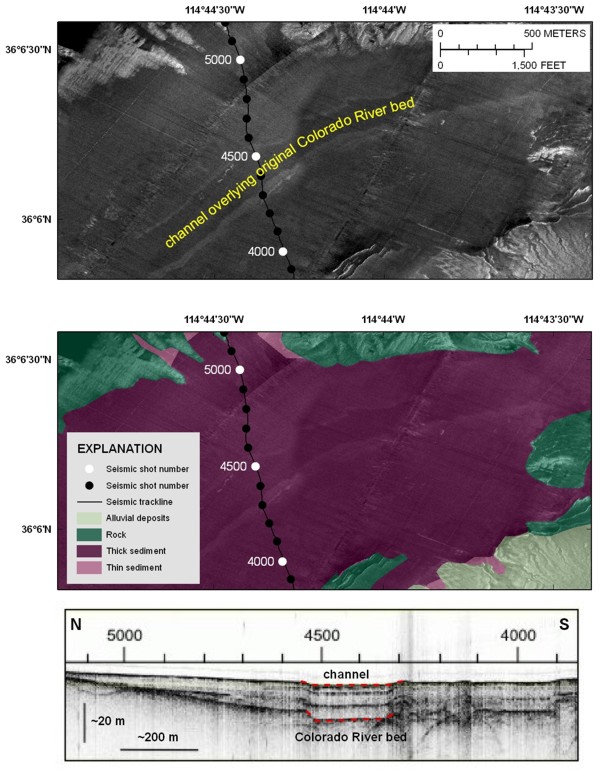U.S. Geological Survey Open-File Report 2009-1150
Surficial Geology of the Floor of Lake Mead (Arizona and Nevada) as Defined by Sidescan-Sonar Imagery, Lake-Floor Topography, and Post-Impoundment Sediment Thickness
 |
| Figure 9. Sidescan-sonar image (top panel), interpretation (middle panel), and seismic-reflection profile (bottom panel) from Boulder Basin. The sidescan image shows the low-backscatter (dark-gray tones) nature of the post-impoundment sediment in this part of the lake. The two moderate-backscatter bands mark the edges of a low-relief channel. The seismic profile shows that this channel overlies the original Colorado River. The images are correlated by seismic shot numbers. The numbers along the top of the seismic profile are shot numbers that correspond to the dots along the seismic tracklines in the top two panels. See figure 1 for the location of this figure. Click on figure for larger image. |